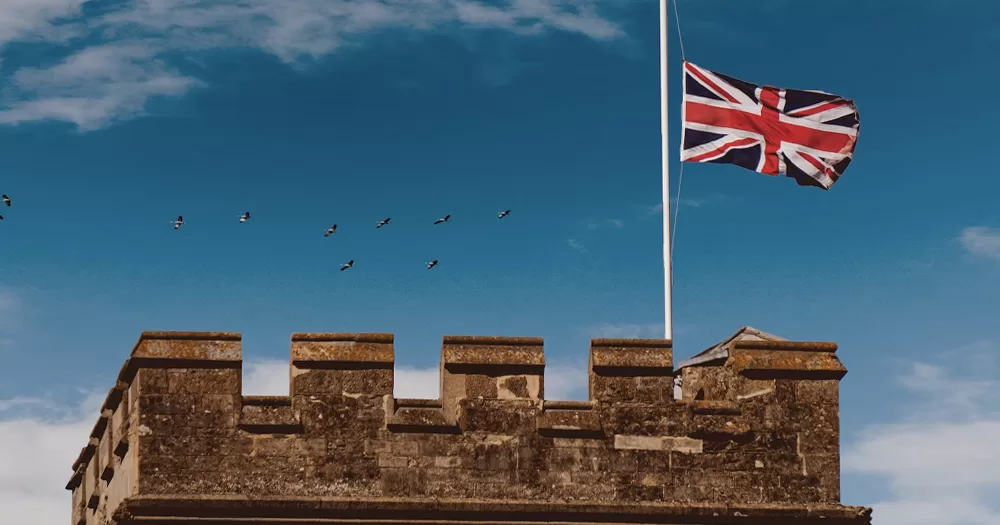The history of anti-LGBTQ+ legislation around the world is deeply tied to colonial oppression. In many countries, people are still living under regressive colonial-era laws and many such countries are former territories of the British Empire. The legacy of homophobia and transphobia that British colonialism left around the world still impacts the lives of millions.
In April 2018, during a meeting of Commonwealth Heads of Government, former UK Prime Minister Theresa May issued an apology about the British Empire’s role in introducing anti-LGBTQ+ legislation around the world.
“I am all too aware that these laws were often put in place by my own country. They were wrong then, and they are wrong now,” she said. “As the UK’s Prime Minister, I deeply regret both the fact that such laws were introduced, and the legacy of discrimination, violence and even death that persists today.”
The legacy of homophobia and transphobia caused by British colonialism began in 1860, when the Empire started to spread a set of legal codes to other countries under their rule, making relations between consenting men illegal. These codes were drafted with a moral and religious mission in mind and with the goal of protecting local Christians from “corruption” and correcting “native customs”.
One particular example of such sets of laws was the Indian Penal Code, introduced by British historian Lord Thomas Babington Macaulay in 1862. The code contained section 377, which had been modelled on Britain’s 16th Century Buggery Act and stated that “whoever voluntarily has carnal intercourse against the order of nature with any man, woman or animal” would be punishable with imprisonment and fines.
The Indian Penal Code was then used by the British as a basis for criminal laws in many other territories under their rule. As a result, several countries in the Asian continent still have various forms of section 377 in their codes.
The spread of anti-LGBTQ+ legislation was not centrally coordinated and was heavily influenced by the colonial administrators and whether or not they had dealt with criminal codes in their previous postings. This is why former colonies have such vastly different penalties. In Ghana, the criminal code refers to “unnatural carnal knowledge,” which is punishable with a prison sentence of up to three years. By contrast, in Uganda and Zambia, laws against homosexuality include death sentences.
Even in Ireland, the laws that criminalised homosexuality were a legacy of the British Empire. The archaic Victorian laws – the Offences Against the Person Act 1861, which criminalised “buggery” and the Criminal Law Amendment Act 1885, which referred to “gross indecency” – had been legislated for during British occupation but were adopted into the Irish statute books after the formation of the state.
Such laws had legally permitted the wholesale persecution of gay men and had undoubtedly emboldened anti-LGBTQ+ sentiment for more than a century, until they were repealed in 1993 following David Norris’s historic court case.
According to Enze Han and Joseph O’Mahoney, authors of British Colonialism and the Criminalization of Homosexuality, these laws were introduced in the colonies because of a “Victorian, Christian puritanical concept of sex”.
“They wanted to protect innocent British soldiers from the ‘exotic, mystical Orient’ – there was this very orientalised view of Asia and the Middle East that they were overly erotic,” the two authors explain. “They thought if there were no regulations, the soldiers would be easily led astray.”
The result was that such strict and regressive laws clashed with centuries of complex cultural attitudes towards sex and gender identity. Several communities around the world had a more flexible and non-prescriptive view of sexuality and gender roles, before the British colonists swooped in and deemed them “unnatural” and “perverse”.
For example, trans and intersex identities had traditionally been part of South Asian culture in the hijra communities. In India, LGBTQ+ relationships were present in literature, myths and art before the Empire introduced their homophobic attitudes. The Igbo and Yoruba tribes in Nigeria and the Dagaaba people in Ghana did not assign gender at birth and instead preferred to do it later in life. In Angola, men dressing in women’s clothing was a cultural norm among the Imbangala people.
These communities were suppressed and erased by the British Empire and its harmful views on gender identity and sexuality. But the damage done by the legacy of homophobia and transphobia introduced by British colonialism doesn’t only live in the past. There are 65 countries around the world that still criminalise homosexuality, and many of them are former British colonies.
While the number of countries that have decided to repeal their colonial-era laws is increasing, there is still a long way to go before LGBTQ+ identities are free and accepted all over the world. For many of the LGBTQ+ people from these countries, the only hope to escape the persecution that they face is to seek asylum in other countries.
© 2023 GCN (Gay Community News). All rights reserved.
Support GCN
GCN is a free, vital resource for Ireland’s LGBTQ+ community since 1988.
GCN is a trading name of National LGBT Federation CLG, a registered charity - Charity Number: 20034580.
GCN relies on the generous support of the community and allies to sustain the crucial work that we do. Producing GCN is costly, and, in an industry which has been hugely impacted by rising costs, we need your support to help sustain and grow this vital resource.
Supporting GCN for as little as €1.99 per month will help us continue our work as Ireland’s free, independent LGBTQ+ media.
